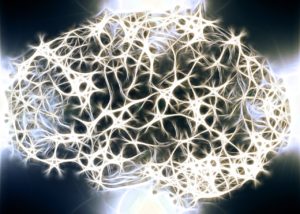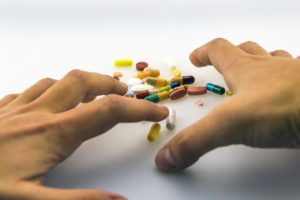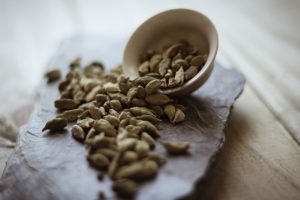It’s no secret that drug addiction can be very destructive to the body and mind. Long-term use of many drugs can lead to long-term damage, and this can affect the quality of someone’s life.
The old medical understanding of damage caused by drugs seemed to suggest one thing – you can help yourself feel a bit better, but you’ll never be able to actually repair any damage done. This was especially believed to be true in the brain – we thought for many years that if you killed your brain cells, then they were gone forever.
 Nowadays, we know better than that. We know that the brain can regenerate and repair brain cells through a process known as neurogenesis, which we’ll talk about in this article. We’ll also talk about how to best recover from any physical damage done to your body by drugs. Remember – not all damage can be reversed, but some can certainly be overcome.
Nowadays, we know better than that. We know that the brain can regenerate and repair brain cells through a process known as neurogenesis, which we’ll talk about in this article. We’ll also talk about how to best recover from any physical damage done to your body by drugs. Remember – not all damage can be reversed, but some can certainly be overcome.
Using nutrition to help your brain and body recover is part of a holistic recovery plan. Many addiction workers implement nutrition and diet into their recovery plans, so you should not doubt the importance of using nutrition to help yourself heal.
Keep in mind that this article is for those looking for information on damage that is already done. We have a different article on how nutrition can prevent drugs from being as destructive to your body and brain.
How do drugs damage the body?
Different drugs damage the body in different ways, which means that there are going to be different ways for you to recover from the damage, depending on what drugs you used and how you used them. The method of ingestion is important.

- Eating drugs can cause problems unique to the mouth, stomach, and intestinal lining
- Snorting drugs can cause problems in the sinuses, throat and lungs
- Smoking drugs causes problems in the lungs and throat
- Injecting drugs causes problems in the circulatory system
These rules generally apply to any drug. However, the type of drug in use can cause further problems.
- Amphetamines are known to be neurotoxic and destroy neurons, as well as causing receptor downregulation (this is something that occurs as a user becomes tolerant to a drug. It makes the receptors in your brain less sensitive to your ‘happy chemicals,’ and can lead to long-term depression and anxiety.)
Amphetamines, as well as cocaine, are known to put lots of stress on the cardiovascular system. Methamphetamine is also corrosive and can impair the function of any organ in the body.
- Opiates are known to cause serious downregulation of the opioid receptor system, which our body uses naturally to regulate pain, pleasure, happiness and anxiety. Serious downregulation can lead to cognitive problems like depression and instability.
- Marijuana can cause the premature emergence of psychosis or mental health problems. Marijuana use also downregulates the cannabinoid system, which the brain uses to help regulate comfort, pleasure and other mental processes.
Those are the most common ways that excessive drug use can cause problems.
It’s important to remember that repeated use of any substance or behavior can cause serious changes in the brain’s dopamine reward pathway, which is responsible for us being able to feel pleasure and rewards. Long-term changes to this pathway can result in anhedonia, a process in which a user is unable to experience pleasure from normal activities they once enjoyed.
Anhedonia is one of the leading causes of relapse because it can persist for many months or years after the addiction has been stopped. Fortunately, we are now learning that anhedonia can be counteracted with proper nutrition.
So how can I heal the damage done?
Most of the long-term damage that’s caused as a result of drug use is mental in nature, so we’ll address some of these issues first.
1) Mental health
 Anhedonia is a serious problem for many recovering opioid and amphetamine users, but can occur as a result of any addiction – even a process addiction like a sex addiction.
Anhedonia is a serious problem for many recovering opioid and amphetamine users, but can occur as a result of any addiction – even a process addiction like a sex addiction.
Anhedonia can be caused by a restructuring of the brain’s dopamine reward pathways, or extreme desensitization to the dopamine receptors. The best way to go about this is to take substances that promote neurogenesis so your brain can compensate for broken receptors by creating new ones.
- The most effective supplement for improving anhedonia is uridine monophosphate which can be bought online. It should be taken with omega-3 fats and folate.
- Omega-3 fats on their own can be useful in helping the brain repair damaged connections. This can help with anhedonia and depression.
Memory and brain function are often impaired by excessive use of stimulants, but the brain can repair itself.
- There are many nootropics that rely on enhancing the cholinergic system. Choline is one of the main neurotransmitters responsible for learning and cognition, and taking nootropics like Piracetam or Noopept can help restore your mental abilities.
- B vitamins will help your body remember how to turn carbohydrates into usable energy, which will help eliminate some mental and physical fatigue.
2) Physical health
 The physical problems done by drugs and alcohol can be wide and varying, but there are general rules to follow to keep yourself healthy.
The physical problems done by drugs and alcohol can be wide and varying, but there are general rules to follow to keep yourself healthy.
- Adaptogens are substances that work with your body to ensure the proper balance of minerals, vitamins, enzymes, etc. to ensure you can reach a state of homeostasis. Homeostasis is the body’s state of equilibrium, and returning to this state is why so many addicts find that recovery takes much longer than the actual detox process.
- Great adaptogens for helping restore physical and mental health include ashwagandha, ginkgo biloba, and gotu kola – all herbs that have been used in ayurvedic medicine for years.
- Humic acid and fulvic acid are very powerful mineral supplements that also have a chelation effect that can draw heavy metals out of your body. These are incredible supplements for someone recovering from an addiction and possibly among the most powerful nutritional supplements on the planet.
-
In conclusion
Now you know that you’re not going to be “screwed” for life if you’re worried about the damage drugs have done to you. This article in no means suggests that it’s safe or okay to abuse drugs. At some point, damage will become irreversible. This article is also in no way to be used in place of a doctor’s care. It is intended solely to provide you with information that can help your body recover from some of that damage with natural methods.
